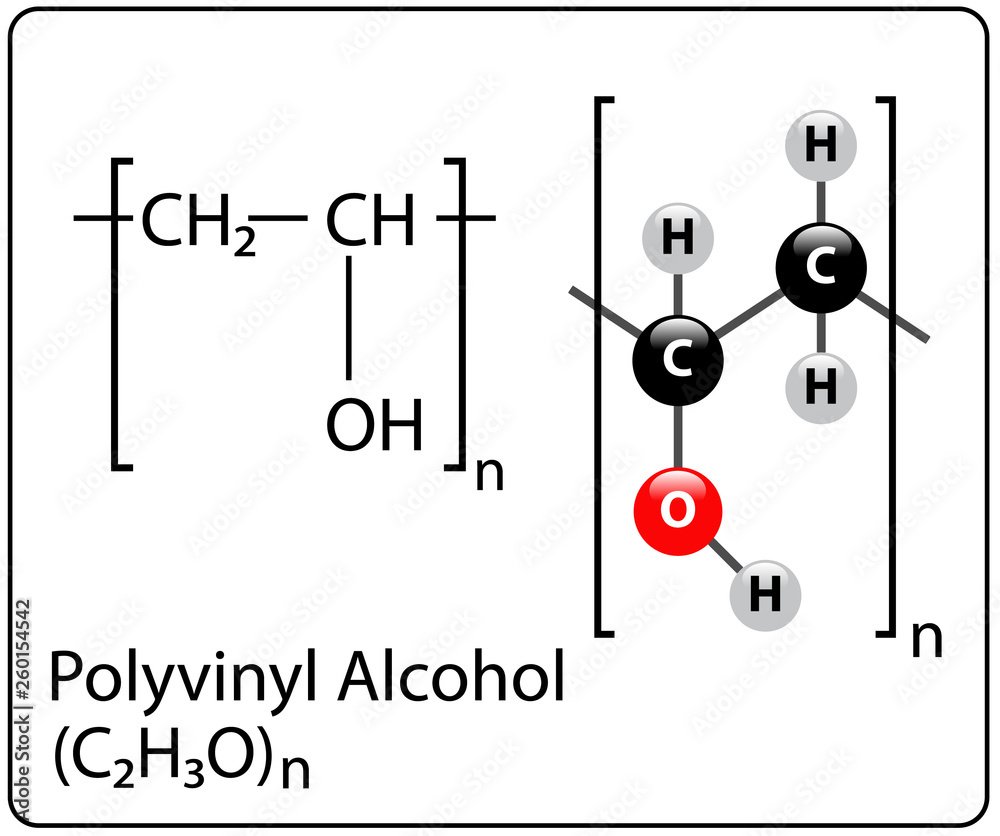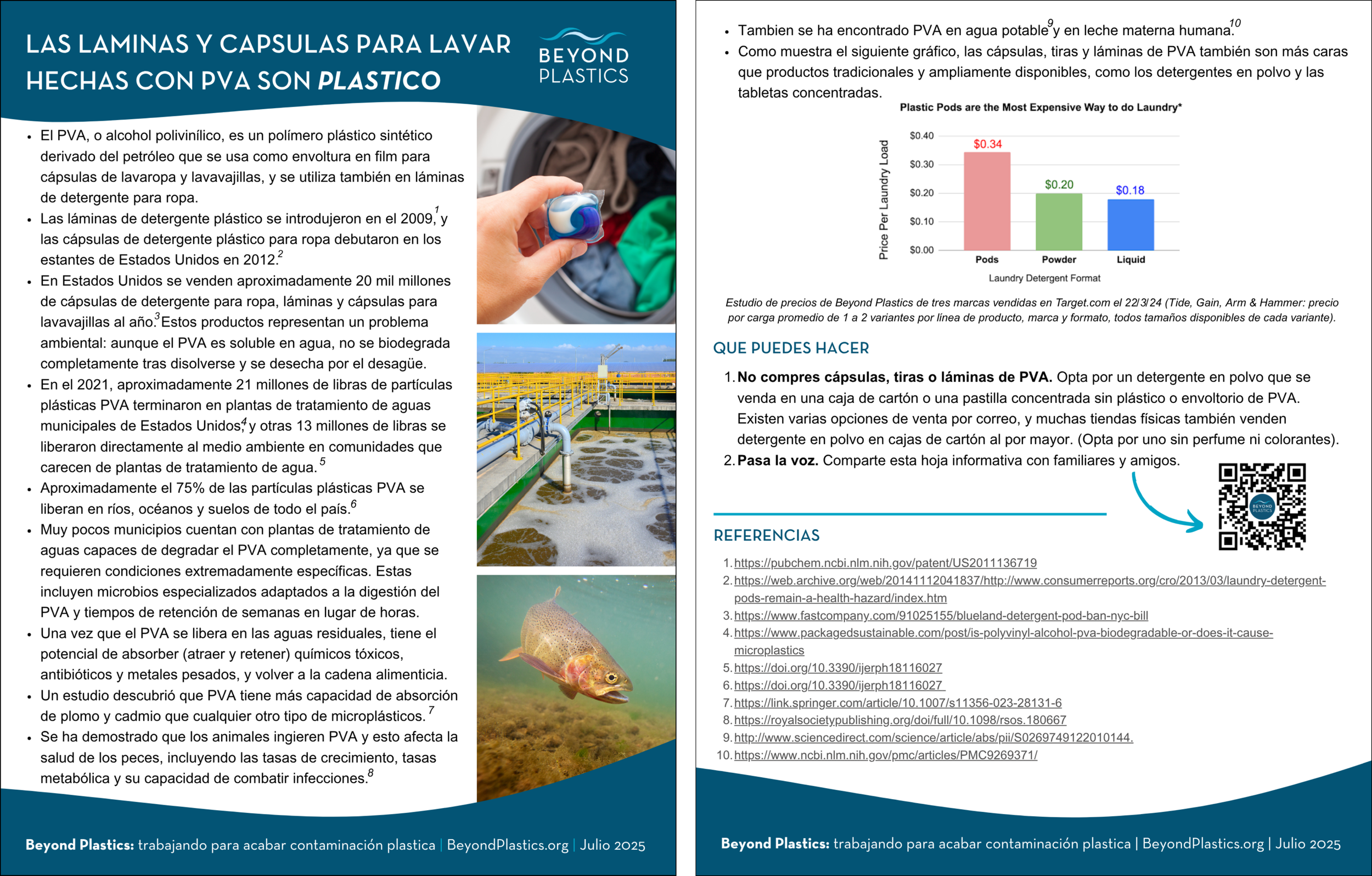Detergent Pods & Sheets Made with PVA Are PLASTIC
What is PVA?
PVA stands for Polyvinyl Alcohol, a synthetic, petroleum-based plastic polymer that is used as a film wrap for laundry and dishwasher detergent pods, and in the material used in laundry detergent sheets.
How long has PVA been around for?
Plastic laundry detergent sheets were introduced in 2009 and plastic laundry detergent pods made their debut on U.S. retail shelves in 2012.
How widespread is PVA and what are the concerns?
An estimated 20 billion laundry detergent pods, sheets, and dishwasher pods are sold in the U.S. annually.
These products pose an environmental problem: while PVA is water soluble, it does not fully biodegrade after dissolving and is washed down the drain.
In 2021, an estimated 21 million pounds of intact PVA plastic particles ended up in U.S. municipal wastewater treatment plants and an additional 13 million pounds were released directly into the environment from communities lacking wastewater treatment plants.
About 75% of undegraded PVA plastic particles are released into rivers, oceans, and soils across the country.
Very few municipalities have wastewater treatment plants that can fully degrade PVA, because extremely specific conditions are needed. These include specialized microbes adapted to digesting PVA, and retention times of weeks instead of hours.
A potential threat to human health
Once PVA is released into wastewater, it has the potential to adsorb (attract and hold onto) toxic chemicals, antibiotics, and heavy metals, and work its way back up our food chain.
One study found that PVA has a higher adsorption capacity for lead and cadmium than all other types of microplastics studied.
PVA has been shown to be ingested by animals, and to impact fish health: including growth rate, metabolic rate, and the ability to fight infection.
PVA has also been found in drinking water and in human breast milk.
PVA is concerning given its impact on the health of other organisms, as well as its ability to act as a carrier for toxic substances.
Source: Beyond Plastics pricing survey of three brands sold online at Target.com on 3/22/24 (Tide, Gain, Arm & Hammer: price per load average of 1-2 variants per brand product line and format, all available sizes of each variant).
PVA is pricier than the alternatives
PVA plastic laundry pods, strips, and sheets are also more expensive for consumers than traditional, widely available products such as powdered and liquid detergents and concentrated laundry tablets, as the bar chart shows.
It costs about 34 cents per laundry load using pods, whereas it costs only 20 cents per load using powder, and 18 cents using liquid detergent.
What You Can Do
Don’t buy PVA pods, strips or sheets. Switch to a powdered detergent sold in a cardboard box or a truly plastic-free concentrated tablet that is not sold in PVA wrapping. There are a number of mail order options available, or, many brick-and-mortar stores also sell bulk cardboard boxes of powdered laundry detergent made by major brands (opt for a detergent that’s free of both fragrance and dyes, if possible.)
Spread the word. Share this fact sheet with your friends and family to help them make more informed decisions.








